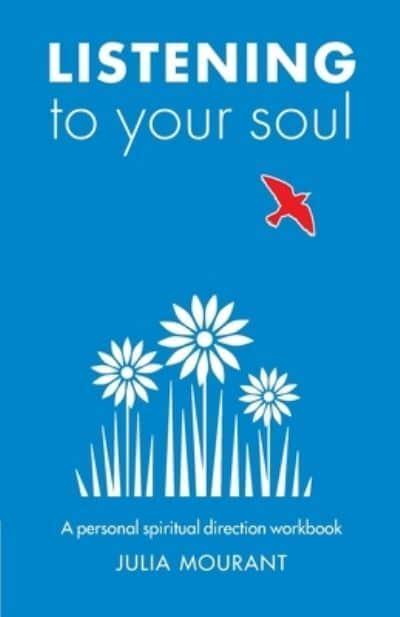Canterbury Press 2022 ISBN-13 9781786223364 Pb 144pp
In these strange and unpredictable post lockdown days of uncertainty and weariness who do you turn to for support? Who listens to us ? How do we listen to ourselves ? At any point on our life journey how might we ‘make meaning’? This book opens up how our Souls are ‘ a deep well of God-given wisdom’ as they yield some of the complex truths of our lives and experiences.
This book is an invitation to listen to ourselves and our needs within the context of our spiritual selves and the pains and struggles of our living and believing. It is also an insightful (and readable) introduction to the nature and practice of spiritual direction. How might the art of this particular listening help us to see, feel and connect with our inner world and its voices?
The book is neatly and adroitly organised. The Introduction offers the reader to the concept and language of the Soul and unpicks the nature of direction that is grounded in the authors long seasoned experience. ‘Spiritual direction is a place to explore connection, not a refuge for self-indulgent navel gazing.’ (p xii) Direction ( an interesting word in the opening narrative of the book) is contextualised within the beliefs and practices of theology acknowledging the shifting geography of belief without diminishing its importance for the moment as we work out our salvation.
‘ Soul conversation is what spiritual direction or accompaniment is all about’ (pxviii) as the space allows for us to explore the truth of joy, wonder, sorrow and bewilderment. These experiences are life long and require courage to open the self up into the complexity and pain of how we choose to live and and act in each moment of our days. Distance, self awareness and humility seem to be key characteristics on this shared journey.
Some practicalities are also dealt with in this introduction including beginnings and finding the right person; what you might be looking for in a spiritual director. How might we go about making a judgement about an individuals competence or trustworthiness? Being clear about having engaged in some learning or training alongside a commitment to regular supervision should, Mourant points out, be part of this discernment. There key phrase in this section might be this , ‘ look for signs that the spiritual director is on their own spiritual journey’ (p xxiv).
The quality of language throughout the book is especially careful. Words build and destroy; they express love and hate; they can mask our prejudices and disconnectedness. Each page reminds those privileged to be invited into a space of listening that ‘less may be more’ as we all attempt to name our longings, our heart and our identity. In this sense, these processes of attentiveness that underpin the discourses of spiritual direction are an important part of enabling us to listen and mine shared wisdom.
The substantial part of the book is thirty eight short chapters that explore a range of life experiences and the myriad of human feelings and aspirations associated with them. The process is clear, invitational and demanding. The aim is to help an individual think and feel their way into the process of this accompaniment and to see where the wisdom might lie. As you read this book note how rarely the author closes down any question with satisfying or clever answers. The skill here ( as perhaps in much of life) is to live within the geography of paradox, ambiguity and uncertainty.
The choice of subject areas is interesting. The range from Faith, God, Vocation, Prayer ( especially generative), Time and Scripture to Sleep, Regret, Darkness, Failure and Forgiveness. There is, of course, much in between. Each one of these thirty eight chapters is short but the use of space is a model for any teacher or writer. Why? The reader is gently and safely landed into their own lives and experiences but also moved deeper into them by attentiveness, sensitivity and searching open spiritual and theological questions.
The book concludes with a useful bibliography, a list of useful organisations and an outline of frequently asked questions.
This book is clear about what it is and what it is inviting its reader into. No piece of writing can or should attempt comprehensiveness. However there are questions for all of us about power and competence, boundaries and safety, control and power that are present in all our encounters. There are also profound questions about the way the intersectionality of our worlds enable or disable us to make sense of living and dying – and much else in between ! If religion has a tendency towards hard edges and certainties then some of that may well find its way into the work of the modern spiritual director. This is why this book is important. If offers an introduction to the work and art of spiritual direction painted in colour and texture and words that are blissfully free form the rigidities of indelible ink.
It deserves to be widely read and used. It will change your horizons.

